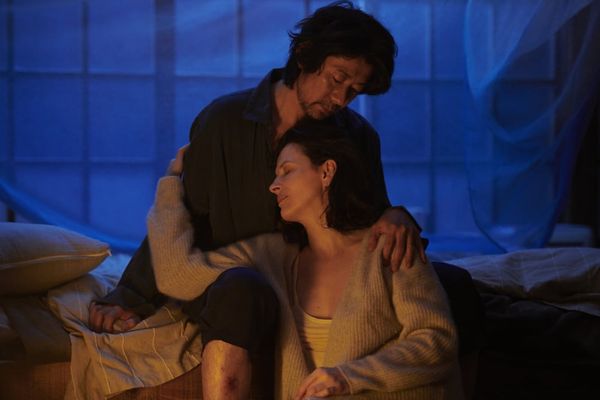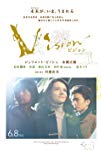Eye For Film >> Movies >> Vision (2018) Film Review
Vision
Reviewed by: Jennie Kermode

Naomi Kawase's first film shot partly in English (and partly in French, though it's set entirely in Japan) was always destined to get a rough ride from critics. Make a small concession with language and suddenly people start demanding a degree of cultural accommodation they didn't dare request before. Nobody, however, can deny the brilliance of Kawase's distinctive framing, nor the beauty of her imagery. If you frequently immerse yourself in Japanese cinema, the chances are that you will love this film. If it's still exotic to you, be prepared to merely admire it.
The action takes place in a forest - a mysterious, magical space in virtually every culture. Two women interrupt ranger Satoshi (Masatoshi Nagase) as he engages in quiet contemplation, then impose upon his sense of obligation to avail themselves of accommodation in his home. One of them, Hana (Minami), is only there to translate and soon makes herself scarce. She has lingered just long enough to help forge a connection between Satoshi and the other, Jeanne (Juliette Binoche), a lonely Frenchwoman who has come to the forest on a private quest. Left to communicate in their shared but very limited English, Jeanne and Satoshi spend months together and become lovers, finding a new means of understanding through their flesh.
Jeanne is looking for a legendary plant - actually a fungus, as she learns - that releases spores once every thousand years. It is supposedly a cure for heartache, for the emotional pain she visibly carries. Satoshi's elderly neighbour Aki (Mari Natsuki), who claims to be a thousand years old, tells her that its sporing time is near. This is where critics - and perhaps audiences too - diverge. Some seem enraged that Kawase doesn't do the respectable thing and restrict her story to the level of metaphor. Japan, however, is not embarrassed by spiritual notions or fantasy, and few Japanese viewers will see any good reason why they should not have both.
Kawase knows this forest as intimately as its inhabitants. She sometimes keeps her camera so close to leaves and branches that we can see little of what lies beyond, enchanting us with what is close and immediate, keeping her secrets in reserve. Like a good ranger, she is not afraid to move slowly. In one shot, in absolute silence, we watch a single leaf fall down from high above; it is a moment so compelling that you will hesitate to interrupt it with a breath. "Are we still in the present?" Jeanne asks. The narrative moves us around in time, more interested in the workings of the mind that any externally imposed reality.
Interweaving and entangling different kinds of love, the film introduces a third character, young wanderer Rin (Takanori Iwata) who seeks the kind of deep understanding that can perhaps only come with the pain Jeanne hopes to lose. He complicates the relationship between the two leads in a non-specific way that feels more real because it doesn't conform to the demands of conventional narrative. Themes of death and rebirth make the approaching event feel foreboding even as it is alluring. There is something here much bigger than all of them and the implication is that it is only though surrendering herself to this that Jeanne can reconcile love and mortality.
The tension between Western and Eastern ideas runs throughout, reflected in the fractured, non-sequential narrative. Linear time runs up against cyclical time. Kawase invites her new audience to find peace through the ancient practice of forest bathing. Like Jeanne, though, they have to be willing to make a leap of faith.
Reviewed on: 28 Feb 2019















